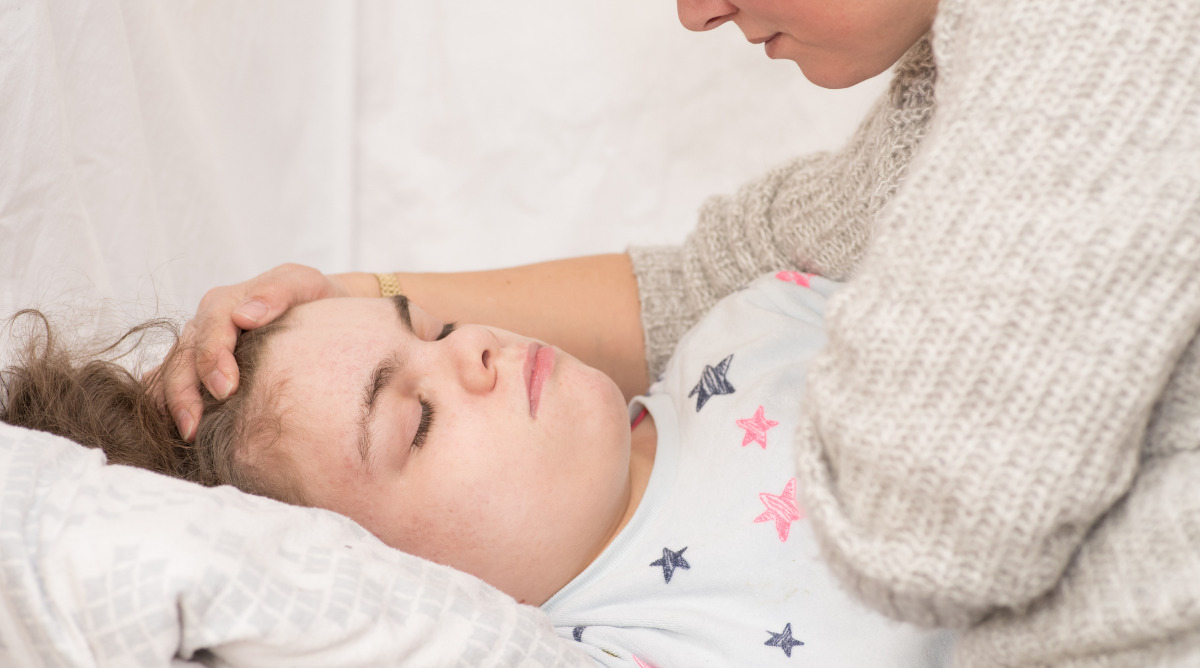
Life with epilepsy is hard to imagine unless you have it or know someone who does. Because living with seizures that can happen anytime or anyplace (with no warning) is debilitating for patients. And for children, it can lead to other health and developmental problems if symptoms are not managed.
An exciting new study suggests that whole-flower-derived cannabinoids may be most effective. And it could have something to do with the way CB1 and CB2 receptors in the body react to cannabidiol (CBD) when paired with THC.
The paper was titled “Medical cannabis for severe treatment-resistant epilepsy in children: a case-series of 10 patients”. And it sheds some interesting new insight into seizure treatments using cannabinoids. And what may work better for children who have symptoms that did not respond to other types of treatments.
States that have legalized medical cannabis do their research. When lawmakers are evaluating which qualifying health conditions apply, they look at clinical studies. Seizures and epilepsy diagnoses make patients eligible for a medical card in every legalized state.
And there is a good reason for that. Globally, there are a large (and growing) number of clinical studies on the topic, specifically for moderate to severe epilepsy or seizure disorders. And what scientists have found is that it can work.
In fact, cannabis may provide better symptom relief than any other type of compounded medication for epilepsy. The big proof lies with the FDA. In 2018, the U.S. Food and Drug Administration approved Epidiolex. A cannabis-derived oral solution for the treatment of Lennox-Gastaut syndrome and Dravet syndrome. The medication was formulated for use by patients two years and older.
Read: “Medical Marijuana vs. Epidiolex for Seizures.”
Using cannabis to treat involuntary muscle spasms and seizures is nothing new. As far back as 1800 BC, in fact, ancient Sumerian and Akkadians were using it to treat epilepsy. And then, in the 10th century in Persia, hemp leaf juice was used by sublingual uptake to treat seizures as well. According to holistic text from a physician named Ali ibn al-Abbas al-Majusi.
Charlotte Figi was the most famous patient case of cannabidiol having a life-saving impact on a child with severe epilepsy. The girl began experiencing seizures at the age of three months. She had the rare form of epilepsy called Dravet Syndrome.
Therapeutically, cannabinoids worked, and the results were life-changing for Charlotte and her family. Sadly, Charlotte (who inspired Charlotte’s Web) passed away in April 2020 from suspected Covid-19 health complications.
Because of the federal prohibition of cannabis, endorsing a pharmaceutical derived from it was a big deal. But are compounded medications made from cannabis just as good as administering it raw?
Not according to a recent study in England. It was published in the BMJ Paediatrics Open journal. And the study involved ten (10) children with severe epilepsy. None of the children had responded to previous treatments, including cannabidiol (CBD) therapies.
The study found that whole-plant cannabis (which includes THC) helped reduce the frequency of seizures. By a whopping 86%. It is beyond clinically significant and suggests that the healing properties of cannabidiol may be more effective when paired with tetrahydrocannabinol (THC).
In the United States, medical cannabis programs have created a path for minors with health conditions to access cannabis. A designated parent or legal guardian can register with the medical marijuana program to provide assistance.
Caregivers are responsible for consulting with medical practitioners about best-practice and therapeutic recommendations. And they can purchase (in some cases grow at home) and administer cannabis as part of a treatment plan for the minor.
Because cannabis can impact physical and cognitive development in adolescents, many states have regulations for low-THC products. That reduces the psychoactive effect of cannabis as well for the child. Concentrated cannabis products are also available by physician referral for minors in end-of-life care.
No Information on MarijuanaDoctors.Com should be used to diagnose, treat, prevent or cure any disease or condition. You can view our Full Disclaimer here.